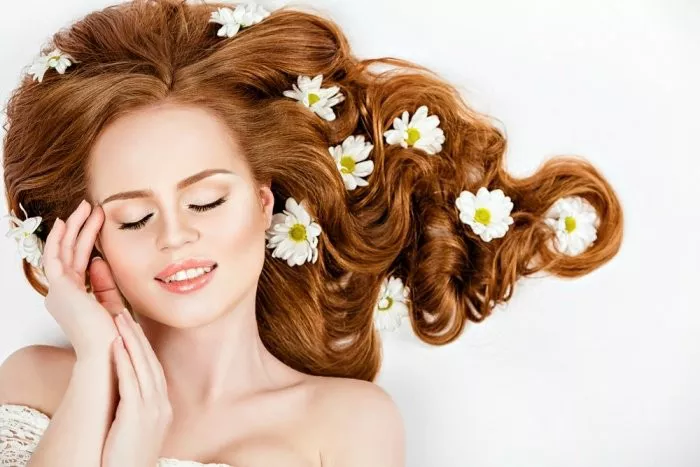Hair fall can be a distressing experience, especially at the age of 18 when most individuals are just beginning to explore and express their personal style. At this critical stage of life, noticing excessive hair shedding can lead to a significant dip in self-confidence. While some hair fall is normal—losing around 50 to 100 strands a day—excessive loss requires attention. This article delves deep into hair health advice and offers eight practical and science-backed methods to help stop hair fall and promote healthy growth at this young age.
Maintain a Balanced Diet
Your hair reflects your inner health. A lack of essential nutrients can lead to premature hair fall. Iron, protein, zinc, biotin, and vitamins A, C, D, and E are crucial for healthy hair. At 18, rapid hormonal and physical changes can make it harder for the body to maintain optimal nutrient levels. Incorporate leafy greens, nuts, dairy, eggs, lean meats, and fruits into your daily meals. Avoid extreme diets or junk food binges, which can deprive your hair of necessary nourishment.
Include Protein-Rich Foods
Hair is made of keratin, a protein. If your diet lacks protein, your body will prioritize essential organs over hair follicles, leading to hair shedding. Eggs, fish, tofu, lentils, and yogurt are excellent sources to include regularly.
Don’t Skip Iron and Zinc
Iron helps red blood cells carry oxygen to your cells, including hair follicles. A deficiency can cause shedding. Similarly, zinc supports hair tissue growth and repair. Include foods like spinach, red meat, pumpkin seeds, and beans to prevent deficiencies.
Adopt a Healthy Hair Care Routine
Teenagers often experiment with hairstyles and products, sometimes to the detriment of their scalp and strands. Following the right hair care tips can significantly reduce breakage and fall.
Use Mild Shampoo and Conditioner
Choose sulfate-free, paraben-free shampoos tailored to your hair type. Overwashing strips the scalp of natural oils, while under-washing may lead to buildup and scalp infections. Conditioning after every wash helps maintain moisture and reduces friction.
Limit Heat Styling and Harsh Treatments
Excessive use of straighteners, curling irons, and blow dryers can weaken hair strands. Chemical treatments like rebonding or coloring also degrade the hair shaft. Limit usage and always apply heat protectants before styling.
Massage the Scalp Regularly
Scalp massage improves blood circulation to the hair follicles, encouraging growth and reducing fall. Use your fingertips to gently massage your scalp in circular motions for 5–10 minutes daily. Consider using oils like coconut, castor, or rosemary oil, known for their hair-strengthening properties.
Try Essential Oils
Mix a few drops of peppermint, tea tree, or lavender essential oil with a carrier oil like jojoba or almond oil. These oils have anti-inflammatory and antifungal properties that soothe the scalp and enhance follicle health.
Manage Stress Effectively
Stress is one of the leading non-genetic causes of hair fall in teenagers. Exams, social pressure, and lifestyle changes contribute to anxiety, which in turn triggers conditions like telogen effluvium—temporary hair loss caused by stress.
Practice Relaxation Techniques
Engage in yoga, meditation, deep breathing, or regular physical activity. Even 20 minutes of daily exercise can release endorphins that counter stress hormones and improve overall well-being, including your hair’s condition.
Stay Hydrated
Water is essential for transporting nutrients and maintaining hair strand elasticity. Dehydration can lead to brittle hair and a dry scalp, both of which exacerbate hair loss. Aim for at least 8–10 glasses of water per day, and more if you are active or live in a hot climate.
Avoid Tight Hairstyles
Ponytails, braids, buns, and man-buns that pull on the hairline can lead to traction alopecia, a condition where hair is physically pulled from the roots. Opt for looser hairstyles and give your scalp a break. Alternating styles can also reduce stress on the same hair zones.
Use Natural and Home Remedies
Many home remedies passed down through generations still hold relevance today, especially for teenagers seeking safer alternatives to chemical products.
Aloe Vera
Aloe vera soothes the scalp and conditions the hair. It can reduce dandruff and unblock hair follicles that may be blocked by excess oil. Apply aloe vera gel to your scalp twice a week and rinse off after 30 minutes.
Onion Juice
Though pungent, onion juice is rich in sulfur which is vital for hair regeneration. Blend an onion, strain the juice, apply it to your scalp, and rinse after 20–30 minutes with a mild shampoo. Use once a week for best results.
Fenugreek Seeds
Soak fenugreek seeds overnight, grind into a paste, and apply to your scalp and hair. Leave it for 30 minutes before washing off. This can strengthen hair and restore shine.
Follow a Structured Hair Care Plan
At 18, creating lifelong habits is key. Setting a consistent hair care steps routine ensures your hair remains in optimal condition. This includes washing, oiling, trimming, and protecting hair from sun and pollution.
Trim Regularly
Split ends lead to breakage and make hair appear thinner. A trim every 6–8 weeks keeps ends healthy and encourages uniform growth.
Cover Your Hair
Excessive exposure to sun, dust, and pollution weakens hair and causes it to dry out. Use hats, scarves, or hair serums with UV protection to safeguard your strands.
Conclusion
Hair fall at age 18 can feel like a crisis, but it’s often reversible with the right care and attention. By eating well, following a gentle and structured routine, managing stress, and using natural remedies, you can stop excessive shedding and enjoy healthy, vibrant hair. The sooner you begin taking responsibility for your hair health, the better the results in the long run. Begin today with consistent care and the right mindset—and your hair will thank you.
Related Topics:
- Alopecia Areata, the Autoimmune Disorder Behind Sudden Hair Loss
- Influencer Quits Shampoo for 8 Years—Dermatologist Weighs In on Scalp Health
- Top 4 Monsoon Tips for Healthy Skin and Hair


